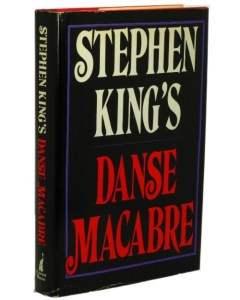A Man’s Heart Is Stonier by Bev Vincent
In 1978, Stephen King was invited to be writer in residence at the English department of his alma mater, the University of Maine at Orono. He moved his family into a rented house on a major highway in Orrington. The heavy traffic included transports heading to and from a nearby chemical plant. A new neighbor warned the Kings to keep their pets and children away from this road, which had “used up a lot of animals.”[1] In support of this claim, the Kings discovered a burial ground not far from the house, with “Pets Sematary” written on a sign in a childish hand. Among its residents: dogs, cats, birds, and a goat.
 Shortly after they moved in, daughter Naomi’s cat, Smucky, was found dead on the side of the road when they returned from a trip to town. King’s first impulse was to tell her that the cat had wandered away. Tabitha, however, believed this was an opportunity to teach a life lesson. They broke the news to their daughter and conducted a feline funeral, committing Smucky’s mortal remains to the pet cemetery. A few nights later, King discovered Naomi in the garage, jumping up and down on sheets of bubble wrap, indignant over the loss of her pet. “Let God have His own cat. I want my cat. I want my cat,” she was repeating.[2]
Shortly after they moved in, daughter Naomi’s cat, Smucky, was found dead on the side of the road when they returned from a trip to town. King’s first impulse was to tell her that the cat had wandered away. Tabitha, however, believed this was an opportunity to teach a life lesson. They broke the news to their daughter and conducted a feline funeral, committing Smucky’s mortal remains to the pet cemetery. A few nights later, King discovered Naomi in the garage, jumping up and down on sheets of bubble wrap, indignant over the loss of her pet. “Let God have His own cat. I want my cat. I want my cat,” she was repeating.[2]
The road almost “used up” the Kings’ youngest son, too. Owen was about eighteen months old when he wandered dangerously close to the highway. To this day, King isn’t sure whether he knocked Owen down before he reached the highway as a tanker approached or if the boy tripped over his own feet. Owen had been born with an unusually large head, and the Kings had already agonized over the possibility of losing him to hydrocephalus. This near miss was an unwelcome reminder of the fragility of their children. » Read more

